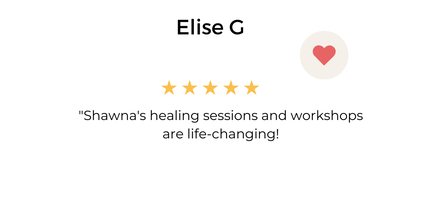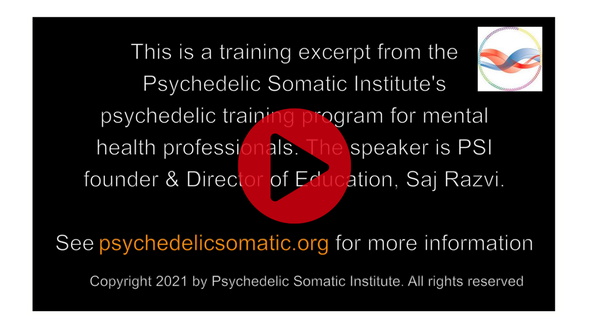Shawna is an expert in psychedelic assisted somatic coaching and integration as an approach to healing from single-event, complex, and dissociative trauma.
|
Each person's experience of life's traumas and dramas is unique to them, and can affect them in different ways.
- intrusive thoughts, images or night terrors
- intense distress at real or symbolic reminders of a traumatic event
- difficulty controlling your emotions
- feeling very angry or distrustful towards the world
- constant feelings of emptiness or hopelessness
- feeling as if you are permanently damaged or worthless
- feeling as if you are completely different to other people
- feeling like nobody can understand what happened to you
- avoiding friendships and relationships, or finding them very difficult
- often experiencing dissociative symptoms such as depersonalisation or derealisation
- physical symptoms, such as headaches, dizziness, chest pains and stomach aches
- regular suicidal feelings
The subconscious mind, which holds our core beliefs in our bodies; the stories we tell ourselves about ourselves, others and life, was programmed by our experiences from an early age...
and it runs the show.
Why Work with Psychedelic Somatic Interactional (PSI) Therapy for Complex Trauma?
Most of modern psychotherapy has focused on the visible, explicit, conscious thought based aspects of how we function.
Compared to the non-rational forces that exist deep in the subconscious mind that are difficult to see, making them hard to measure and tame.
As a result, the field of psychotherapy has mostly missed the subconscious mind: the part of us where the core programing resides.
What we see is just the tip of the iceberg
Click to watch this video from PSI (Psychedelic Somatic Institute) on vimeo - Why Psychedelics are so effective for treating mental health"
Click to watch this video from PSI (Psychedelic Somatic Institute) on vimeo - Why Psychedelics are so effective for treating mental health"

How our autonomic nervous system (ANS) responds to stress is derived from our non-verbal, pre-verbal and dissociated memories (from life's trauma's and drama's) that are submerged beneath the surface of our awareness. These subconscious distortions are embedded and have their own neural networkds that deeply shape who we think we are, and our worldview.
To heal, we must excavate these distortions from the body mind, and rebuild new neural networks that reflect a more accurate model of our true self.
To heal, we must excavate these distortions from the body mind, and rebuild new neural networks that reflect a more accurate model of our true self.
Psychedelic substances temporarily disrupt the DMN and secondary consciousness.
Humans are capable of operating in two modes of consciousness (primary and secondary). We know from brain scans that classic psychedelic substances disrupt the smooth functioning of the default mode network (DMN) and causes secondary consciousness to temporarily fall apart.
What this is telling us is that the main way psychedelics create their reaction is not by creating something new but by disorganizing normal brain activity in order to reveal and allow the body to process what is underneath.
When secondary consciousness takes a break from organizing and filtering reality, you can...
Psychedelics are a catalyst that evoke your internal world and engage your own natural biological, psychological and spiritual processes.
Humans are capable of operating in two modes of consciousness (primary and secondary). We know from brain scans that classic psychedelic substances disrupt the smooth functioning of the default mode network (DMN) and causes secondary consciousness to temporarily fall apart.
What this is telling us is that the main way psychedelics create their reaction is not by creating something new but by disorganizing normal brain activity in order to reveal and allow the body to process what is underneath.
When secondary consciousness takes a break from organizing and filtering reality, you can...
- get in touch with the wisdom of primary consciousness
- feel more deeply that you are part of the world rather than apart from it
- are more interested in and open to having new experiences
- gain access to what has been underneath your conscious personality and ego structure the entire time: namely, your implicit self.
Psychedelics are a catalyst that evoke your internal world and engage your own natural biological, psychological and spiritual processes.
Different Types of Psychedelics Used in Different Settings Get Different Results
Psychedelic substances change their expression and outcome depending on the context in which they are used. Unlike psychiatric medications (like an antidepressant) where it doesn't matter if you take it alone, with friends, or in a therapy setting.
The results of psychedelics depend on factors such as
If you are looking to engage psychedelics as a medicine for working with mental health conditions such as anxiety, depression, dissociation, addiction, PTSD, complex relational trauma or existential concerns, you’ll want an individual, one-on-one, therapy setting with a trained clinician.
The processing and focus required for deep personal healing to occur is simply not accessed in a group setting. Your nervous system will naturally limit the depth of your work if you know you are in a group of people all needing time and attention from a lay practitioner. This is an example of how the body innately knows how to determine if it is safe to process something from the subconscious, as well as what the environment can provide.
The results of psychedelics depend on factors such as
- your internal psychological state at the time of use
- whether your environment is able to support deep processing or not
- having a trusted person to guide you and relate to while on the medicine
If you are looking to engage psychedelics as a medicine for working with mental health conditions such as anxiety, depression, dissociation, addiction, PTSD, complex relational trauma or existential concerns, you’ll want an individual, one-on-one, therapy setting with a trained clinician.
The processing and focus required for deep personal healing to occur is simply not accessed in a group setting. Your nervous system will naturally limit the depth of your work if you know you are in a group of people all needing time and attention from a lay practitioner. This is an example of how the body innately knows how to determine if it is safe to process something from the subconscious, as well as what the environment can provide.
Things to Consider
Psychedelics are known to be generally safe, but can amplify mental or psychic processes. As with anything, there are potential risks and contraindications to take into consideration and bring up with your practitioner, such as:
- Family history of mental illness such as schizophrenia
- Recent mental health hospitalizations
- Overall mental, emotions, physical health
- Any medications that could potentially cause adverse reactions
- Living in an active threat situation (like an abusive relationship, for example.)
The safe use of psychedelic medicines that produce non-ordinary states of consciousness, like cannabis, ketamine, MDMA, psilocybin, in combination with relational somatic therapy, create a synergistic effect that allows us the ability to access and alter subconscious core programming in ways that we are unable to touch in standard mental health treatment.
Imagine entering into a reoccuring nightmare intentionally, lucidly, and with an ally who can show you new ways to work through those scary places in your mind and body until they no longer hold a charge for you.
How Cannabis works as a Medicine for Processing Trauma
Cannabis is considered a Tier 1 psychedelic, and is proving itself to be optimal for discharging trauma from the subconscious mind / body.
If you pair cannabis with the PSI therapy model that was specifically designed to work within an altered state of consciousness, it becomes an incredibly useful therapeutic experience. Perhaps more so than any other medicine we’ve encountered, cannabis undergoes a radical change and exhibits very different properties when used during therapy.
It moves from being a recreational calming or uplifting tool to being a deeply excavating, therapeutically supportive experience. Basically, your conscious mind, identity and defense mechanisms get out of their own way, and allow more sensation, more repressed feeling, and more memory to arise from your unconscious mind to be seen, felt and processed. This is a very therapeutically useful response.
Cannabis is considered a Tier 1 psychedelic, and is proving itself to be optimal for discharging trauma from the subconscious mind / body.
- The consensus among veteran participants who completed twelve 2 hour sessions of cannabis-assisted psychotherapy was that roughly 75% of their PTSD had been resolved. (Note that this was a treatment resistant population with enormous amounts of adult war trauma along with high levels of childhood developmental trauma.)
If you pair cannabis with the PSI therapy model that was specifically designed to work within an altered state of consciousness, it becomes an incredibly useful therapeutic experience. Perhaps more so than any other medicine we’ve encountered, cannabis undergoes a radical change and exhibits very different properties when used during therapy.
It moves from being a recreational calming or uplifting tool to being a deeply excavating, therapeutically supportive experience. Basically, your conscious mind, identity and defense mechanisms get out of their own way, and allow more sensation, more repressed feeling, and more memory to arise from your unconscious mind to be seen, felt and processed. This is a very therapeutically useful response.
Benefits of PSI Therapy
We find that clients receiving this type of treatment, increasingly over time, begin to feel less stuck in old habits of being. They begin to experience states that feel relaxed and alert and are better able to respond to the present moment.
Anxiety and depression may recede and are often replaced with a feeling of being more authentic, self-accepting and loving. Relationships can improve dramatically. The world around them can become less threatening as it becomes easier for them to give and receive support.
Other more specific benefits may include:
• decreases in compulsive behaviors and traumatic feelings such as rage, panic and hopelessness
• an increase in the ability to feel non-threatening feelings such pleasure and relaxation, a sense of goodness in self, others and the world, ability to respond to and feel the present moment, sense of agency or power
• a new ability to feel appropriate, milder feelings such as anger, sadness and anxiety
Anxiety and depression may recede and are often replaced with a feeling of being more authentic, self-accepting and loving. Relationships can improve dramatically. The world around them can become less threatening as it becomes easier for them to give and receive support.
Other more specific benefits may include:
• decreases in compulsive behaviors and traumatic feelings such as rage, panic and hopelessness
• an increase in the ability to feel non-threatening feelings such pleasure and relaxation, a sense of goodness in self, others and the world, ability to respond to and feel the present moment, sense of agency or power
• a new ability to feel appropriate, milder feelings such as anger, sadness and anxiety
The bottom line is that psychedelic medicines work and when used in a safe way with proper guidance and support, are highly effective in helping bring much needed relief to our mental health crisis.
What to expect
- During an initial consultation, you can get your questions answered and together we'll determine if this model is the right fit for you at this time.
- We schedule a minimum of 3 non-medicine led somatic processing sessions to get you acclimated to the process (in person or virtual) Not everyone chooses to work with medicine... we can do somatic processing and relational work alone. This is always an option.
- When it is time to introduce the medicine in a session (when you feel ready... no pressure and medicine is not required to experience a powerfully healing somatic process) you bring your own legally acquired dose to the session. The therapist does not administer or supply medicine.
- The timing is unpredictable, but on average expect a 2 hour range. If session is in person, it's best to coordinate with someone to pick you up following a session or you can wait in my office until the medicine wears off to drive homen safely. No charge for your wait time.
- Integration in between sessions is also part of the process. We can talk about what this looks like during our initial consultation.
- The number of sessions varies per person. In between session, intgetration work is essential. We will discuss during your initial consultation.
NOTE: Not all states allow for legal access to these medicines (yet). We can discuss legal options on our call. I do travel for some clients, and also offer virtual sessions for many cases. (some may require in person)
INVESTMENT: An initial package of 6 session is $1,650. We'll start with a minimum of 3 non-medicine led somatic practices and work up to medicine guided sessions.
You will also have access to my online group integration clinics that support your healing and success with this program. (we meet twice a week for integration)
We can discuss this in further detail on a discovery call.
*Each medicine led session will be $350 following this initial package price. Non-medicine somatic coaching sessions are also an option.
Testimonial
"You saved my life!
After 30 years of PTSD, I would wake up in the morning not knowing how I could make it through the day. I'd go through my day with flashbacks and suicidal ideation--all day long. And at night struggle to sleep after night terrors. I was depressed and miserable. Sessions with Shawna gave me the clarity and space I needed to heal. My PTSD symptoms have greatly lessened. It's like a new lease on life.
Life feels different. When life comes at me with challenges I can navigate them better-with more clarity, groundedness and with a sense of direction. I feel great about my work. I feel more in control of my life. I feel more compassion towards myself and other people." MC


